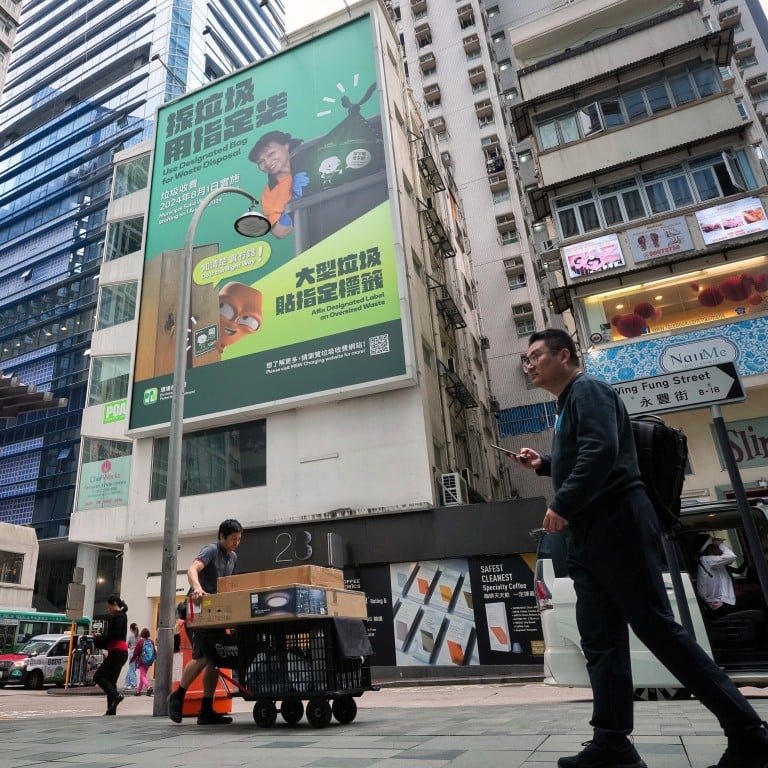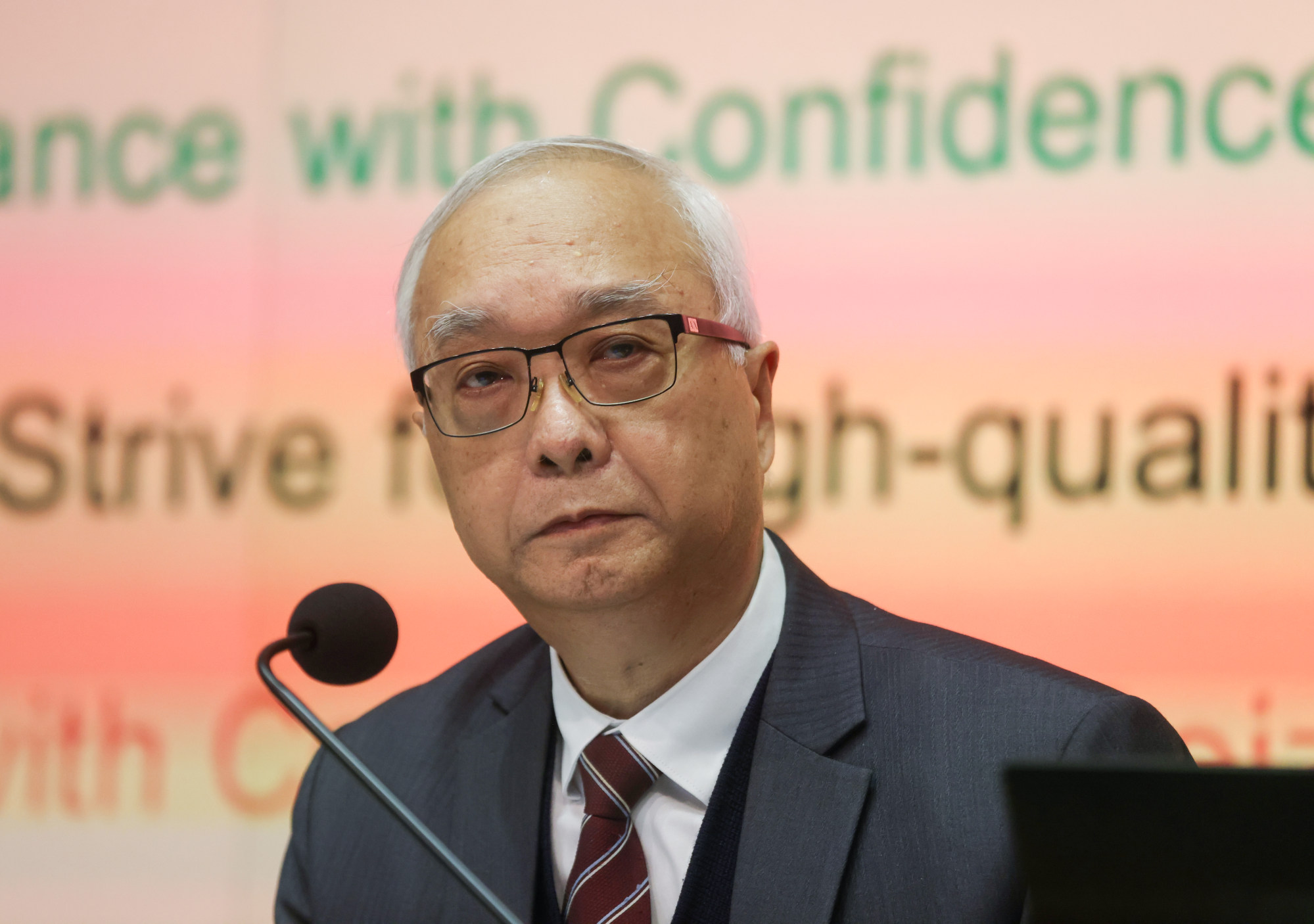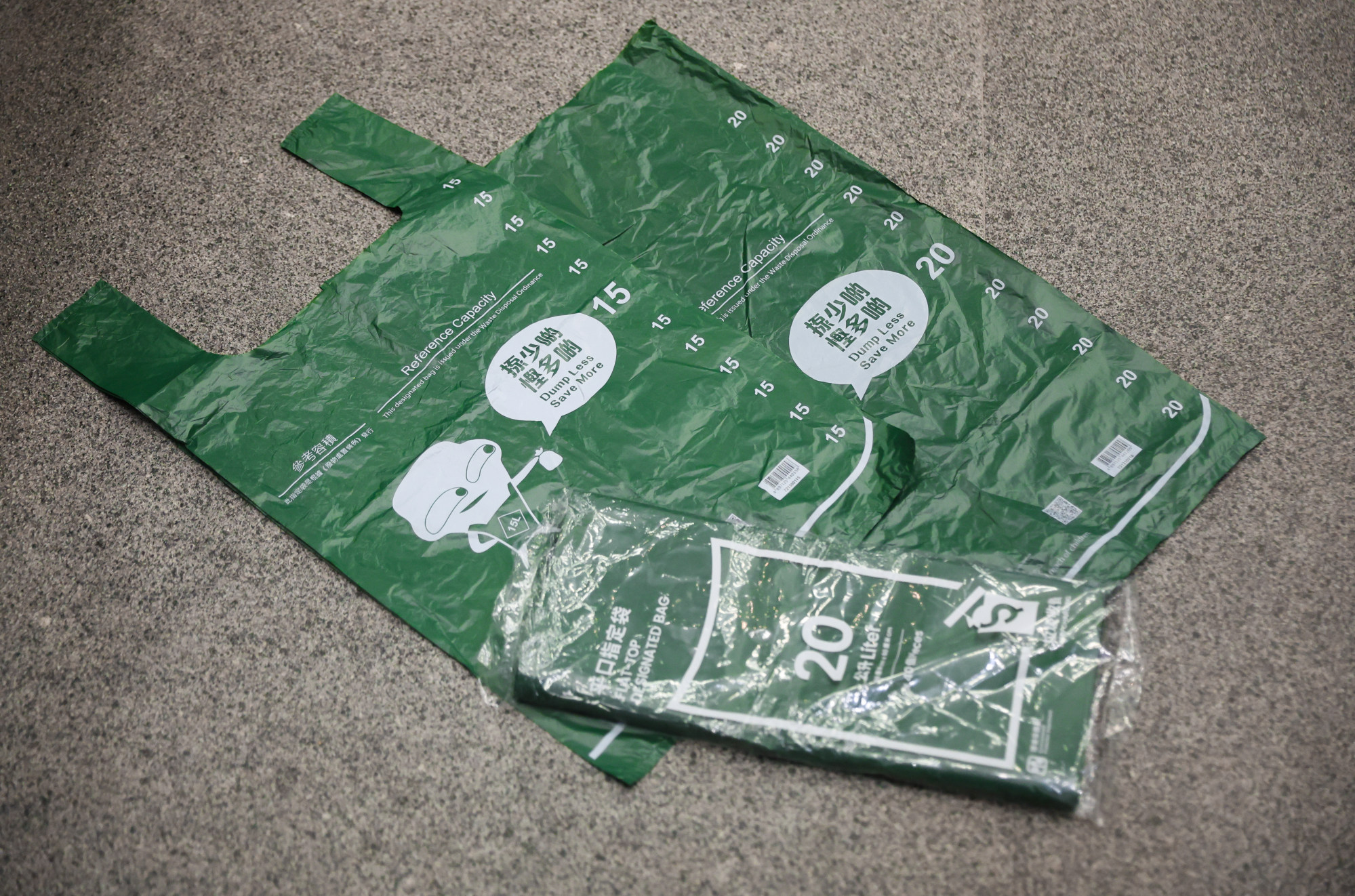
Hong Kong waste-charging scheme expected to bring in HK$1.79 billion in first year with volume of rubbish to grow slightly
- Environment chief Tse Chin-wan says the income the government obtains will depend on various factors including whether people follow the rules
- Government estimated about half of the population will use the designated rubbish bags
Hong Kong authorities expect a coming waste-charging scheme to bring in revenue of HK$1.79 billion in its first year, with the volume of rubbish estimated to increase slightly, the government’s latest budget has revealed.
Environmental authorities on Friday said they expected residents would need a “long time” to adapt to charging practices in the early stages of the much-delayed scheme, which starts in August after being pushed back again from April.
Hong Kong delays waste charging to August as leader decides more education needed
Secretary for Environment and Ecology Tse Chin-wan noted the income the government could obtain would depend on various factors, including whether the public followed the rules, how they adapted to the scheme and if they engaged in cutting their waste.
“We used an estimate that about half of the population would be using the designated bags. That is neither optimistic nor pessimistic,” he told a news briefing.
“The government has [stressed] before that the purpose of waste charging is not to generate revenue by itself. Therefore, we will spend roughly the same amount of money gathered to support waste reduction and recycling activities in Hong Kong.”

The government had earlier predicted the scheme would bring in revenue of HK$867 million, 52 per cent lower than the latest estimate.
Budget documents also showed that authorities expected the city’s three strategic landfills would process 5.763 million tonnes of garbage in 2024, slightly higher than last year’s 5.761 million tonnes.
The waste-charging scheme will require households to pay for the rubbish they produce at a rate of 11 cents per litre. Residents must buy designated rubbish bags, ranging in size from 3 litres to 100 litres, before disposal.
The scheme’s passage in 2021 included a grace period of six months, during which authorities would give out verbal warnings instead of initiating prosecutions. It was delayed twice after the government conceded that it needed more time to prepare for the launch.
The environment chief said in January that the government would extend the adaptation period when necessary.
6-month grace period for Hong Kong waste scheme ‘may be extended if needed’
The Environmental Protection Department on Friday said the HK$1.79 billion revenue estimate was based on overseas experience that residents would need a long time to adapt to the changes.
“We estimated that half of the residents would use the designated bags, so the corresponding revenue is about HK$1.6 billion,” a spokesman said.
He added that the remaining HK$190 million would be collected from waste-collection service providers for access to landfills.

He said the department started accepting bulk purchases of the designated bags at the end of last year and expected that the arrangement would help residents develop a new habit, thus improving the compliance rate.
“The government will review the plan three years after the implementation of waste charging,” he said. “At that time, it will conduct an overall review of various arrangements for garbage charging, including charging levels.”
Hong Kong officials urged to clean up act, change waste-charging scheme tactics
Greenpeace campaigner Leanne Tam Wing-lam said the lack of a phase-in timetable for the scheme would prevent the public from getting used to the new practice.
“The government doesn’t have any key performance indicators about how much waste the city has to reduce at each stage,” she said.
“This is why the scheme has largely remained unpopular, because the public can’t understand the reasons behind the scheme.”
Edwin Lau Che-feng, executive director of environmental group The Green Earth, called it a “telling indicator” that the scheme would be carried out in a “light-handed” manner, which would decrease the public’s incentive to reduce waste.
He urged the government to stop doing things “for the camera” and to focus instead on the urgency to drum up efforts from the public.
A mop and a pause on Hong Kong’s waste-charging scheme
Separately, it was announced in the budget that the first-registration tax concession arrangement for electric private cars would be cut by 40 per cent on April 1, given the price reduction of electric vehicles (EVs) and increasing availability.
The maximum first-registration concession under the “One-for-One Replacement” scheme would be adjusted to HK$172,500, with the ceiling for general EVs to be lowered to HK$58,500.
Tse said the measures would not make car owners lose interest in EVs as prices had continued to fall due to the abundance of models available in the market.
